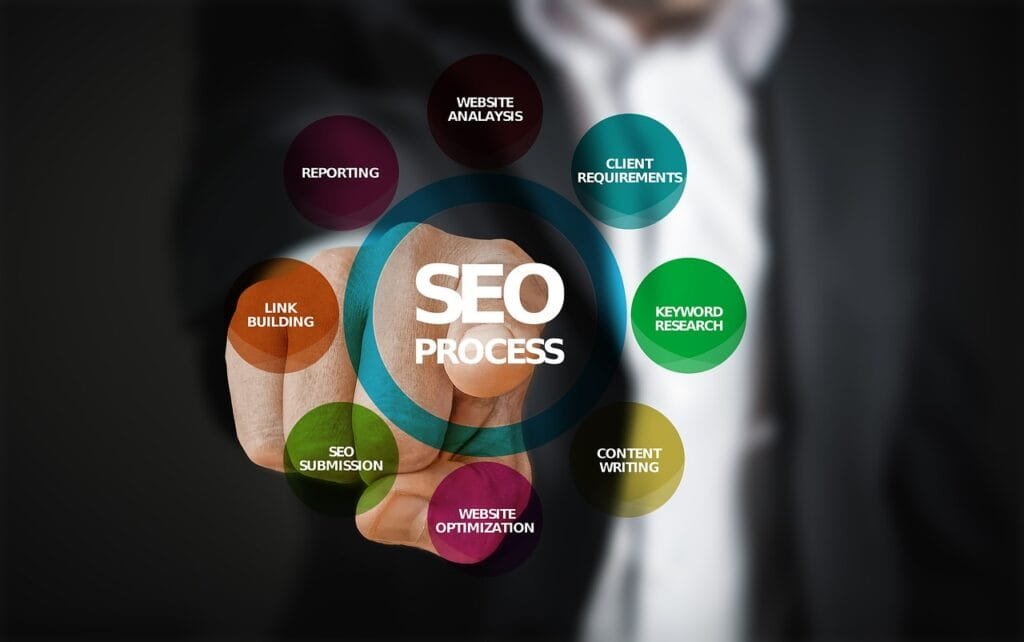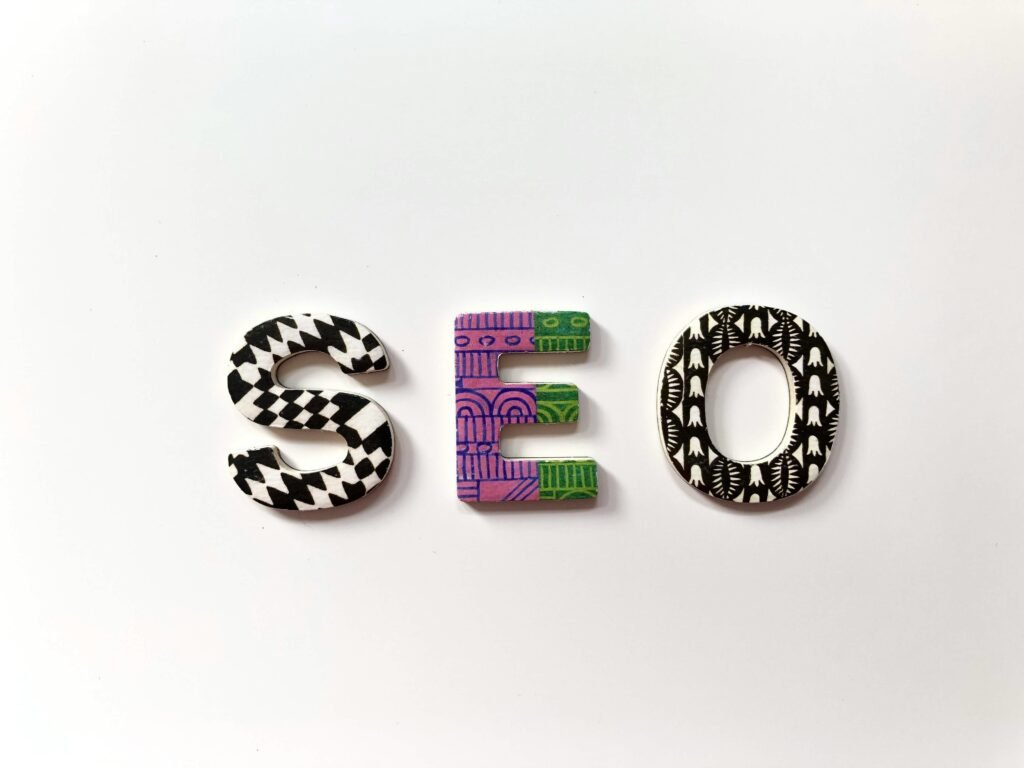Role of AI in Marketing
AI’s been shaking things up in marketing, serving up fresh tricks and tactics to get the job done better and quicker. It’s all about making smart guesses and customizing what folks see or get. So, let’s break it down.
Transforming Future Strategies
AI in marketing is like striking gold. Stuff like deep learning—think supercharged brainpower of computers—helps predict what buyers might do next. It’s like a mind-reader for businesses, asking, “Hey, do you want fries with that?” before you even know you do! Cool, right? Companies like Netflix and Amazon are already on this train, using AI to suggest movies you might binge or figuring out how fast you want that package in your hands. They show how this tech isn’t just a thing of the future; it’s now. Everyone’s betting it’ll flip their businesses inside out and upside down (Invoca) (10Web).
Personalized Marketing Approaches
AI’s leading the charge in personalized marketing. By crunching more numbers than a human could dream, it creates one-of-a-kind experiences for shoppers. Picture this: a whopping 64% of marketers are already singing AI’s praises, calling it their secret sauce, while 80% agree it’s changing how customers view brands in a big way.
With AI, businesses get smart—really smart—mixing tons of data and savvy strategies to zero in on customers like never before. This means hitting the bullseye with ads and messages that really click with people. Marketing is all about making each click, tap, and interaction feel personal, showing off the massive perks of diving into AI for getting to know your audience better.
In short, AI’s knack for guessing consumer moves and making marketing personal is why it’s clutch for today’s strategies. Marketers itching to tap into AI’s potential can check out tools and solutions that not only make things hum smoother but also boost how we connect with shoppers. Dig deeper into this on our pages about ai marketing tools and ai driven customer insights.
Impact of AI in Market Research
AI has shaken things up in market research, changing the game for how companies dig up and crunch data. This tech wonder promises a bunch of upsides and, of course, its fair share of headaches.
Opportunities and Challenges
AI is kicking the dust out of dull, repetitive tasks like cleaning up data, crunching numbers, and pumping out reports. Researchers can now sink their teeth into understanding what makes consumers tick and helping their companies make savvy business moves. This change isn’t just a switch—it’s a leap for roles in the industry, opening doors for growth and efficiency.
That said, it’s not all sunshine and rainbows. Getting AI off the ground requires coughing up a lot of cash upfront and finding folks who actually know how to use the stuff. As AI snakes its way deeper into our lives, we’ve got to keep a sharp eye on data privacy and chew over the moral dilemmas over consumer info. Tackling these hurdles is key to hitting the bullseye with AI in market research.
| Opportunities | Challenges |
|---|---|
| Spot-on data | Forking out cash initially |
| Deep consumer analysis | Skilled tech-savvy folks needed |
| Cutting out grunt work | Worrying about privacy stuff |
| Better consumer insights | Complicated setups |
Real-world Applications
AI isn’t just a whiz on paper; it’s shaking things up in the real world of market research. Survey automation is turning the whole survey scene on its head, making everything—from brewing up surveys to crunching the numbers—much smoother and quicker. This means cleaner data, happier survey-takers, and faster insights you can act on (Prismetric).
AI’s also your secret weapon in zeroing in on the right kind of consumer info. With AI tools to watch how folks interact, companies can spot trends and tweak their approach through smart AI-driven chatbots. This tech not only cuts down the elbow grease in data gathering but gives companies a crystal ball into consumer behavior—more accurate than ever.
AI’s prowess in market research shines with its ability to weave together parts like data flows, sophisticated text models, and smart agents to tackle thorny issues (LeewayHertz). With the U.S. market research industry headed for a $24 billion valuation in 2024, driven by a hunger for better data, AI’s role won’t just grow—it’ll explode (Prismetric).
Using AI in market research is all about cranking up efficiency and helping companies make decisions that keep them ahead of the curve in their markets.
Key AI Tools for Market Research
AI is shaking up the way companies dig up insights and make choices. Let’s take a stroll through some of these AI tools that are jazzing up market research, especially pointing at Generative AI and how they’re used in real-life scenarios for sharp, precise results.
Generative AI
Generative AI has become quite a star in market research. It’s helping folks cut down time and boost their data game. With magic-like abilities, tools such as ChatGPT are coaching researchers in everything from crafting survey questions to creating email campaigns. They’re like a swiss knife—multi-talented and always ready to jump in—even lending a hand with writing summaries and spying on competitors! It’s not just talk, AI’s ability to churn out well-written material rapidly translates to quicker and better-informed choices.
Thanks to Generative AI, you can take a detour around drudgery and get a better handle on things with tech like Synth AI, which trims down oodles of data into neat conclusions. This means researchers spend less time untangling data webs and more time cooking up strategies that hit the spot.
Distinct Use Cases
AI tools in market research aren’t just for fancy tricks; they’re making each task a bit less of a headache. Here are some clever ways AI steps up the game:
| Use Case | Description |
|---|---|
| Data Cleaning | AI takes on the bore of tidying data, ensuring researchers work with top-notch info (Quantilope). |
| Predictive Insights | By sifting through past numbers, AI tools help guess what’s coming next in the market dance. |
| Survey Building | AI quickens and sharpens survey crafting, bringing in better replies and more accurate reads. |
| Real-time Analysis | Quick like a flash, AI handles real-time data dives and displays, feeding insights on the fly. |
| Report Generation | Automation eats up the tedious bits of writing reports, leaving researchers free to dig deep into what makes buyers tick. |
Businesses are hitching a ride on AI, leaving behind grunt work and diving into strategic planning. As AI sharpens its claws, expect market research methods to keep growing, bringing a clearer picture of what’s on the horizon. Got more interest in AI’s role in marketing? Don’t miss our deep dives on artificial intelligence in digital marketing and ai marketing tools. They’re just the ticket to staying ahead in the market game.
Applications of AI in Market Research
Artificial Intelligence (AI) has become quite the game-changer for market research, shaking up how data gets crunched and consumer behaviors are understood. Let’s dive into how AI is making waves in this area by breaking down two major applications: keeping tabs on data streams and boosting consumer insights.
Data Stream Analysis
AI tools are revolutionizing how we deal with the avalanche of data that pours in from social media, blogs, and forums. These smart systems can track and analyze information in real-time, letting brands tap into what people are chatting about online without missing a beat. Say goodbye to spending hours sifting through data manually, because AI’s got this covered (10Web).
One big perk here is that AI sweeps away those mundane data tasks. No more repetitive chores like data cleaning and gathering, freeing up researchers to get down to the real business—figuring out what makes consumers tick.
Here’s a quick look at what makes AI stand out in data stream analysis:
| Benefits | Description |
|---|---|
| Real-time Analysis | Grabs live data for instant insights. |
| Automation | Cuts down on manual grunt work in collecting and sifting through data. |
| Comprehensive Coverage | Pulls in info from all over for a full market view. |
Consumer Insights Enhancement
AI goes beyond just checking boxes; it’s like having a personal detective for consumer insights. This tech analyzes visuals and text across digital platforms, picking out brand details like logos and products. AI makes sure marketers are up to speed with all things brand-related without lifting a finger, thanks to tools like the OpenAI Vision API (Improvado).
AI also turns customer feedback and surveys into useful nuggets of information. Advanced algorithms spot trends, consumer likes, and pattern shifts, giving companies a clearer picture of their audience. This means they can tweak marketing strategies at the drop of a hat to match consumer expectations (Prismetric).
Check out how AI jazzes up consumer insights:
| Enhancements | Description |
|---|---|
| Trend Identification | Picks up on new trends and changing consumer likes. |
| Sentiment Analysis | Digs into feedback to capture the emotional vibe, helping shape brand decisions. |
| Segmentation | Groups consumers effectively based on how they behave. |
AI’s touch in the realms of data stream monitoring and consumer insight refinement is reshaping market research like never before. Companies that dive into these AI-enabled waters find themselves better poised to succeed. For savvy marketing tactics, you might want to peek at the influence of artificial intelligence in digital marketing.
Advancements in AI Marketing
In the fast-paced world of marketing, AI is shaking things up, especially when it comes to figuring out what makes consumers tick. Let’s chat about two big leaps in AI marketing: predicting the future and getting real-time insights with some clever language tricks.
Predicting the Future with Analytics
Ever wished you had a crystal ball? Predictive analytics might be as close as we get. It uses AI to crunch old data and spit out predictions on what’s coming up in the market and what customers are likely to do next. This info is gold for marketing folks, helping them plot their next move and use their resources wisely.
AI marketing is booming, on track to skyrocket from $12.2 billion in 2022 to $77.4 billion by 2030. That’s a whopping 25.2% increase each year, underlining why AI is a big deal in market research (10Web).
| Year | Market Value (Billion $) | Growth Rate (%) |
|---|---|---|
| 2022 | 12.2 | – |
| 2030 | 77.4 | 25.2 |
This table gives a neat snapshot of the massive growth AI is set for in the marketing game.
Real-time Insights with NLP
AI is not stopping there. It’s teaming up with natural language processing (NLP), changing how marketing players dig into data. With NLP, they can ask questions in regular, everyday language and get instant insights into what’s happening with the market, how customers are acting, and if their campaigns are hitting the mark. You don’t need to be tech-savvy to get the info you need.
NLP also does big-time sentiment analysis, scanning tons of text from social media, reviews, and forums. It gauges the vibe and opinion trends, helping marketers fine-tune their strategies to better resonate with their audience (Improvado).
With these AI tools, businesses can dig deeper and make nimble, strategic moves. Want to dive further into AI’s impact on marketing? Checking out tools like AI marketing platforms or AI-driven marketing campaigns might be worth your while.
AI Tools for Market Research
AI is shaking up market research, turning the slog into a stroll and making insights pop. Two areas where AI really earns its stripes are in survey automation and sentiment analysis.
Survey Automation
AI-driven tools streamline surveys, taking care of the grindy stuff like creating, setting up, collecting, and analyzing data. Researchers can then focus on the juicy insights about consumer behavior instead of drowning in logistics (Quantilope). These nifty tools help brainstorm questions, magically turn surveys digital, and handle data crunching like pros.
Here’s a quick look at what AI does for survey automation:
| Functionality | Description |
|---|---|
| Survey Ideation | AI comes up with cool and relevant questions based on what’s hot in the market. |
| Automated Survey Programming | Zaps surveys into digital form, cutting down the boring manual work. |
| Data Collection | Makes sending out surveys and gathering responses a walk in the park. |
| Data Analysis | Whips through the analysis of all kinds of data, offering insights you can actually use. |
Using AI tools in market research means you can crank out reports quickly, spotlighting key findings and future trends, steering strategy like a boss.
Sentiment Analysis
Sentiment analysis is another game-changing application of AI in market research. It lets AI get into the emotional nitty-gritty of what people are saying on surveys, social media, and wherever customers spill their thoughts. Automating sentiment analysis allows researchers to dig deeper into what consumers really think and feel.
AI tools sift through consumer feedback and pin down whether it’s glowing, grumbling, or meh, offering worthwhile insights. Here’s why AI-powered sentiment analysis is a must-have:
| Benefit | Description |
|---|---|
| Efficiency | Chews through mountains of data fast, spotting sentiment trends on the fly. |
| Accuracy | Leans on machine learning to keep human bias in check and get a clearer read on feelings. |
| Actionable Insights | Pulls out insights you can actually use, helping with those big business decisions. |
With AI in sentiment analysis, marketers can jump on consumer feedback fast, tweaking strategies and boosting engagement.
Pulling AI into market research doesn’t just cut down the grunt work—it levels up the insight game. Embracing AI tools means market researchers can really tune into what consumers want and need. Want to know more about AI in marketing? Check out AI marketing tools or dive into machine learning for marketing.
Limitations of AI in Market Research
AI in market research is like the latest cool gadget in the tech world—rarely works without a hitch and not as smart as we might be led to believe. There are a few things it just doesn’t do right, which can mess with how reliable those AI-driven insights really are.
Cultural Nuances
AI often stumbles when it comes to decoding cultural stuff. Unlike humans who can read between the lines and get a feel for vibes and traditions, AI can come across as socially awkward at a party. This mechanical brain may just not catch on to cultural subtleties, leading to misunderstandings—or just plain missing the mark. LinkedIn explains AI might interpret cultural clues wrong, which could steer strategies way off course, like mistaking a handshake for a high-five.
Limitations in Adaptability
Now, AI’s not the best at going with the flow, especially when the market’s like a kid on too much sugar—changing all over the place. AI digs through past data for nuggets of wisdom, but it doesn’t really pick up on new habits, fads, or when cultural trends take an unexpected twist. This lack of flexibility can make AI a bit of a flop at dialing in accurate insights. According to LinkedIn, AI might fall short in appreciating tasks that are heavy on human vibes or creating narratives from outdated scenarios, both vital parts of savvy market analysis.
| Limitation | What’s the Deal? |
|---|---|
| Cultural Nuances | AI can mess up interpreting feelings and context across cultures—kinda like trying to understand Shakespearean English today. |
| Limitations in Adaptability | Can’t keep up when things move fast, stuck on data that’s ancient history. |
For folks in charge of AI startups, marketing chiefs, and product planners, it’s sure worth noting these hiccups when leaning into AI for market intelligence. Human smarts mixed with AI gives a fuller snapshot of what’s really shaking in the market. For insights on using AI to supercharge your marketing game, check out our topics on artificial intelligence in digital marketing and ai marketing tools.
Market Research AI Market Growth
Current Trends
The AI marketing world is on a fast track, buzzing with advancements in tech that beef up market research. AI marketing is expected to skyrocket from $12.2 billion in 2022 to a whopping $77.4 billion in 2030, marked by an astounding annual growth rate of 25.2% (10Web). This surge is proof of AI’s rising clout in the market research arena, showcasing how essential advanced tools have become to meet the shifting sands of consumer behavior.
| Year | Market Size (in Billion USD) |
|---|---|
| 2022 | 12.2 |
| 2024 | 24 (U.S. Market Research Industry) |
| 2030 | 77.4 |
AI-driven tools are giving a leg up to conventional market research methods too. For instance, these smart tools detect and break down visual brand elements, helping with efficient brand tracking. Programs like the OpenAI Vision API analyze images and videos to spot logos, products, and actions across the digital landscape (Improvado).
Forecasted Growth Trajectory
With businesses on the hunt for precise data to shape their decisions, AI’s knack for juicing up research and predicting what customers will want next has become a linchpin. The U.S. market research sector, worth over $24 billion in 2024, brims with opportunities for AI tech (Prismetric). Additionally, blending AI with deep learning is set to open a treasure chest of value, estimated between $1.4 trillion and $2.6 trillion globally, with cutting-edge techniques ready to shake up marketing strategies.
More and more organizations are turning to AI for market research, tapping into its power to glean deeper insights and outpace rivals. This perspective signals a solid demand for AI marketing tools, as companies strive to harness technology for top-notch customer interaction and smart decision-making.





















